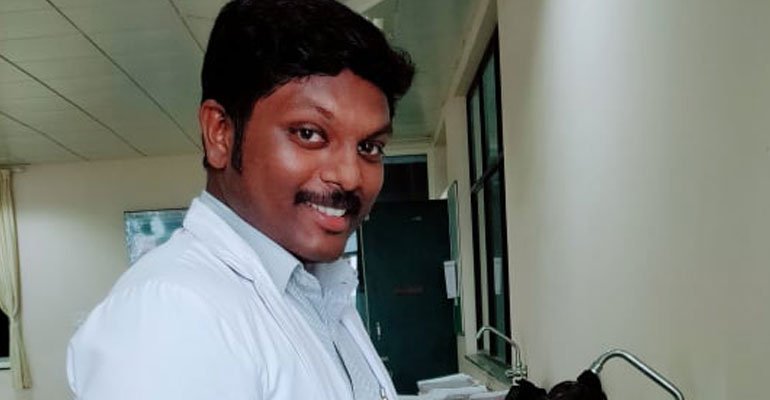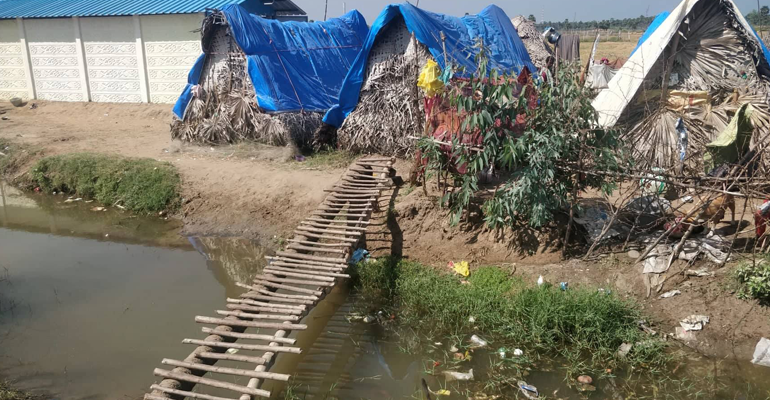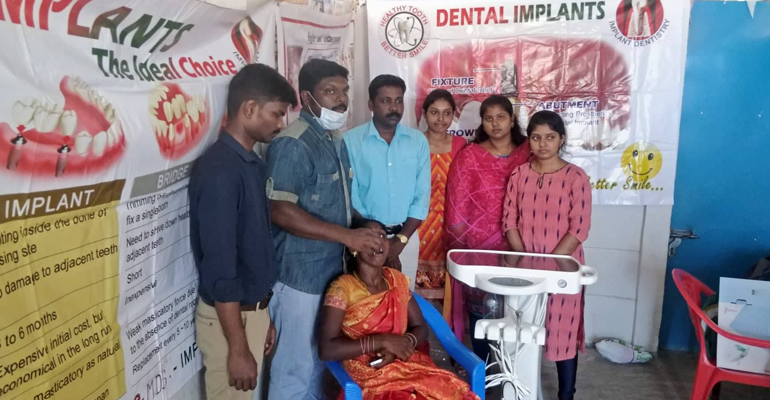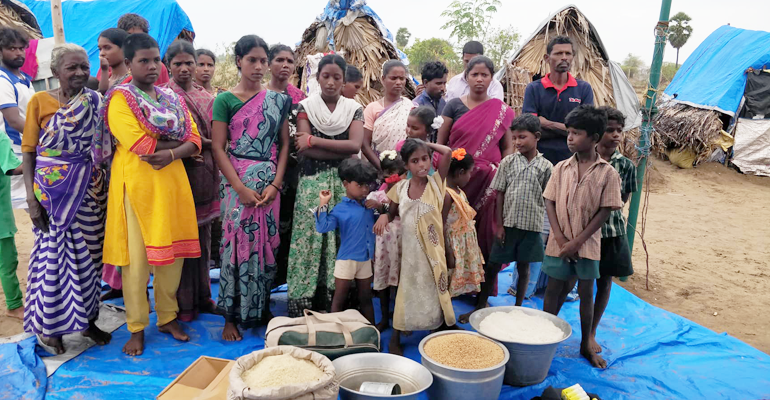When he was a child, his father used to take him for walks. “Whenever my dad came across a beggar or anyone in need, he used to take my hand, give me money to give them. This is 20-25 years back,” says the 33-year-old doctor from Chennai’s Vadalur, Cuddalore district.
The seed of giving selflessly was planted in his childhood itself and now it has come to full bloom, coated with love and compassion.
Life Beyond Numbers got in touch with Arun Varghese VT, a Periodontist, and Oral Implantologist at Mahatma Gandhi Medical College & Research Institute in Chennai who is now working tirelessly to save the Irular tribes in Cuddalore. “The reason is they are so used to isolation, slavery, and exploitation that they have forgotten their own identity,” said Arun.

Cuddalore’s Chidambaram is a small town that is under Killai panchayat, where Irular tribes stay near the waste segregation area. “These people have worked under landlords and have been slaves for so many years. They neither have food and clothes nor the citizenship of this country and yet they are living in India for decades.”
It was 5-6 months back, Arun received a call from his friend Booraswamy, who persuaded him to help him take charge of these people and make necessary arrangements for the welfare of these tribal people.
“Whenever they see new people, they hide in the bushes. We went there to familiarize with them because they are afraid to speak with people outside their community. We had to motivate them to come out and mention that we meant no harm with the help of a local translator,” mentioned Arun to LBN.
To have a care in the world
“It took us nearly 2 hours to reach the area and the way we entered there that was itself a very big tragedy,” recalls Arun. “I was stopped and warned while entering their area not to go near them or interact with them. This made me angry and sad at the same time. I felt that if we are so downtrodden and cannot help other people, humanity will die today itself,” he added.

The initiative and measures taken by Arun and some volunteers have also helped these people to make their own livelihood by helping them do agriculture. Now Banana, Papaya, and drumstick plants are grown there so that these people can cultivate and earn.
Varghese has also set up treatment camps in that area so that oral hygiene can be taken care of. He has built lavatories for them. There are at least 26 families who need a minimum of 10 lavatories, but the sad part is each lavatory costs around 54,000 rupees.

How they call each other is another interesting aspect of this tribe. “They don’t have names and therefore they call each other in local names based on their body shape and sizes- small, tall, fat, slim, handicapped.”
Because of the selfless efforts by two individuals and numerous volunteers, these people now have ration and voter cards. “I remember how a woman who is in her 80s voted for the first time in her life. This made us really happy.”
Who are Irular tribes?
Few reports mention that Irular tribe’s main occupations were catching rats and snakes, trading the snakeskin and other forest products such as honey, beeswax and forest wood for their livelihood. Their economy saw a sharp decline after the laws barred them from trading animal skin and selling woods to make money.

“It was around 1 am and a girl was having labor pain. In that condition also she was not allowed to walk through a common road since she belonged to the Irular tribe. It was her husband who took her around the village by walking for about 3 km without any help. No one stepped forward to assist them to the hospital. As a result, in the middle of the road, they delivered the baby. Due to this, the husband had to cut the umbilical cord by his hand itself. She was later dragged to primary health care while she was almost bleeding to death and the next day a nurse came and admitted her for 15 days in ICU,” narrated Arun to LBN.
The story was published in local magazines and it was really shocking how because of caste or belonging to a particular community, people are dying even today in India.
When human rights violation has its strong roots in superstition, change doesn’t come easy. Why are we not getting angry at discrimination?
Arun is a regular blood donor and celebrates his child’s birthday in old age homes. “I believe every person should have some social responsibility. I am a regular blood donor and I celebrate my child’s birthday in old age homes.” During Kerala floods, Varghese has collected 1.5 lakh rupees and when there was a Tsunami in Cuddalore district, he helped the children with books and notes.
He has a message to send to people, especially the young generation. “Instead of celebrating lavish birthdays why not spend time with people who don’t have a care in the world. We can light up their lives with a simple celebration and bring a smile on their face,” he concluded.
Article Credit: lifebeyondnumbers
